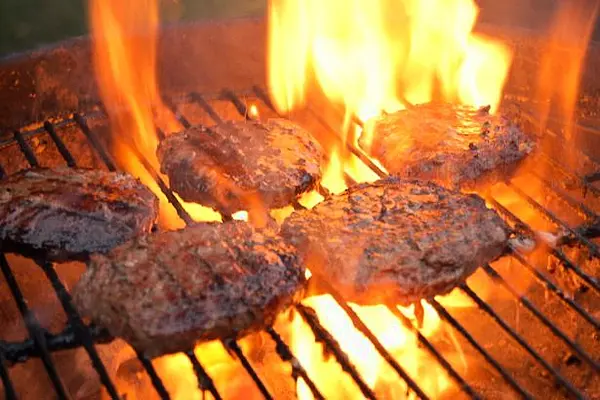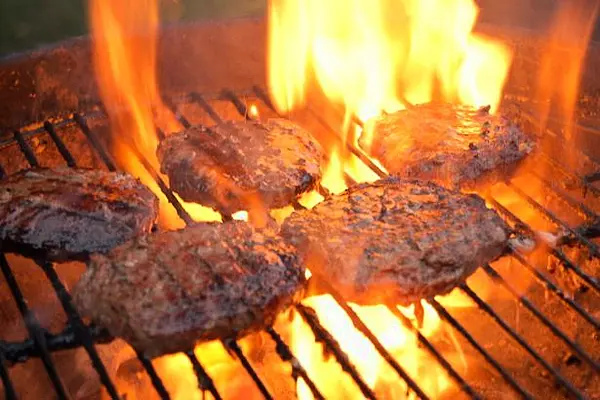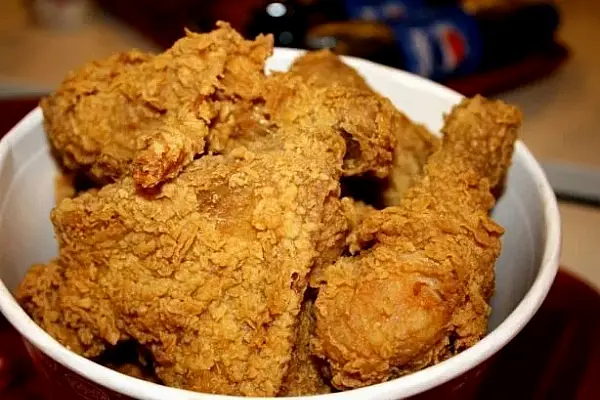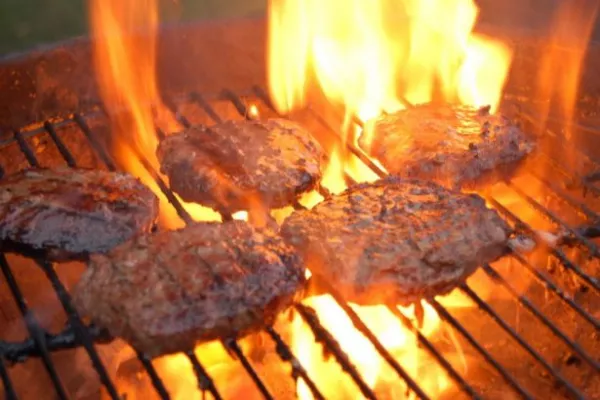A great burger is a beautiful thing, as simple as it is delicious. With just a few cheap ingredients, it packs a dizzying punch of flavour. But a bad burger is like dad-dancing: It lacks taste and finesse and often is plain embarrassing.
So where does it go wrong? We asked someone who has spent years searching for the perfect burger, eating hundreds along the way.
David Michaels has just published that research in a book, "The World Is Your Burger: A Cultural History". The book was about a decade in the making, during which the London-based author visited everywhere from McDonald's to tiny independent stores. In this 430-page encyclopedia Michaels traces the history of household-name chains and also looks at cult burgers and regional upstarts.
Along the way, he spoke to giants such as chef Daniel Boulud, but he's no snob. He remembers with fondness his first-ever visit to a McDonald's, aged 12.
"I can still taste that first bite of a Quarter Pounder with Cheese and it's fair to say that was the moment my lifelong passion for the hamburger was born," he writes.
Here's the eight biggest mistakes made in search of patty perfection.
Getting Overly Creative: The best condiments have stood the test of time, so use them. "If you are going to serve sauce, use Heinz ketchup, French's mustard or a good Dijon," Michaels says. "So far as feeding the mass market goes, everybody loves Heinz, so why try and improve on it?"
Going Skinny: A half-pounder is good. A quarter-pounder is acceptable. Anything thinner is all wrong. "I like a thick patty," Michaels says. "A lot of places do compromise but a half-pounder is a nice size. It's a good meal. If you are hungry, you want something meaty."
Don't Curb the Fat: "You need fat to give a burger that moist taste," Michaels says. "I don't like a dry burger. Burgers by their very nature should be picked up and squished and the juices come out. OK, there are fine-dining burgers. But for the most part, just pick it up and get messy with it."
Going Over the Top (pings): You generally don't need a lot of toppings, Michaels reckons: "People are putting too much on. If a burger is really good, it doesn't need a lot. Great meat speaks for itself. I don't like salads in burger either. They should be on the side. I am OK with cheese." That's a relief.
Melt That Cheese: One of Michaels's bugbears is un-melted cheese. And he's also bored with Cheddar and American varieties. "I like brie, I like mozzarella, I like Swiss cheese, I like blue cheese," he says. "Mix it up a little bit, you know. But for me a burger is always about the meat."
Well Done Is a Crime Against Burgers: "I'd say 90 percent of burger places overcook their meat," he says. It's often not the fault of the restaurants. Health authorities frown on anything cooked less than medium and often require well done. "I don't know why we have to cremate burgers," he says.
Beware Brioche: I like a traditional burger bap, like a good sesame-seed bun," Michaels says. "Brioche takes away from the taste of the meat. And never serve bread that tastes stale."
Keep It Simple Stupid: Michaels reckons there are too may options, often with a variety of toppings and condiments to try to create something novel. Instead channel creativity into using different meats, offering lamb, buffalo and duck as good alternatives to beef.
And Finally...Michaels offers three hotspots around the world for that special burger:
Burger Table, Sao Paulo: There are now two branches of this simple restaurant, where you pay on arrival and then pick up your burger to eat at a communal table. There are no frills and there isn't a whole lot of choice, but the burger is epic.
Hard Times Sundaes, New York: This started out as a truck in Brooklyn before migrating to Manhattan. It's is a favourite of aficionados, who are happy to go anywhere and line up for as long as it takes to get chef Andrew Zurica's burgers.
Fergburger, Queenstown, New Zealand: It's not so much the quality of the burger here, so much as its popularity. "Backpackers queue from early morning to late at night," Michaels says. "I've never seen anything like it in the world."
Article by Richard Vines, chief food critic at Bloomberg









